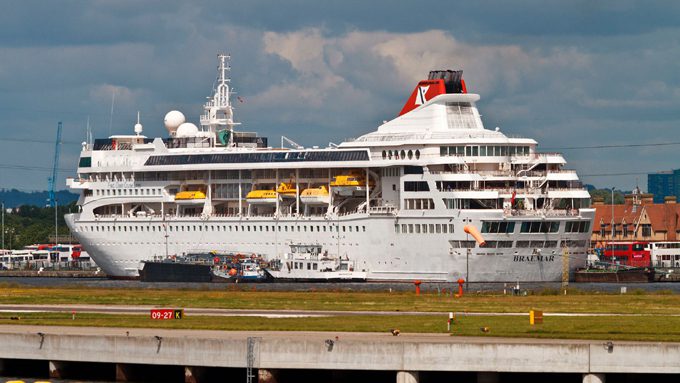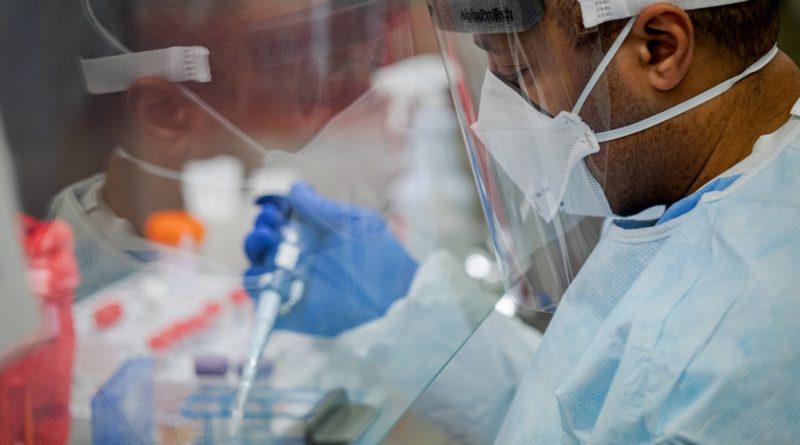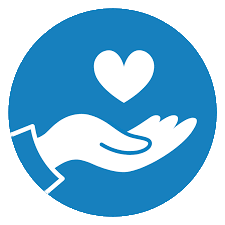US Continues Sanctions Against Venezuela and Cuba During COVID-19 Pandemic
Support this progressive voice and be a part of it. Donate to COHA today. Click here
By Frederick B. Mills
From Washington DC
As most of the world is building bonds of solidarity to contain the COVID-19 pandemic, the US continues to impose crippling economic sanctions on Cuba, Venezuela, Iran and other nations for resisting the political and economic imperatives of Washington. (1) Even Colombia and Venezuela, whose relations recently reached a new low, yesterday buried the hatchet in order to coordinate efforts against the coronavirus. Yet the US continues to impose sanctions on Venezuela and other nations and this curtails their efforts to deal more effectively with the crisis, needlessly putting millions of more lives at risk.
Time is of the essence for lifting sanctions
The pandemic is becoming more grave with each passing hour. According to the Pan American Health Organization (PAHO), of the countries in the region reporting cases up to March 15, “18 of them reported an additional 961 cases in the past 24 hours for a total of 4,538 cases from 34 countries/states/territories in PAHO. The United States continues to report the highest number of cases and deaths in the region, 77% of the total cases and 89% of total deaths in the region.” (2) Worldwide there are now reported 169,019 cases of infection, 6,610 deaths, involving 148 countries, areas or territories. These numbers do not reflect those cases undetected on account of a scarcity of testing kits.
Here is the bottom line. The US economic war against Venezuela makes it more difficult to fight the pandemic because it freezes the country’s foreign assets, prevents international bank transfers and penalizes third party businesses for engaging in commercial transactions with this South American nation. (3) This makes it more problematic to obtain vital medicines and equipment. As a form of collective punishment with lethal consequences, these punitive measures arguably constitute crimes against humanity.
Sanctions kill
On February 13, Venezuela asked the prosecutor of the International Criminal Court (ICC) to investigate U.S. officials for crimes against humanity because, said Venezuelan Foreign Minister Jorge Arreaza, sanctions constitute “a death sentence for tens of thousands of Venezuelans per year.” (4)

There is empirical evidence for the claim that sanctions “are a death sentence”. A report by the Center for Economic and Policy Research (CEPR), “Economic Sanctions as Collective Punishment: The Case of Venezuela,” found that:
“The sanctions have inflicted, and increasingly inflict, very serious harm to human life and health, including an estimated more than 40,000 deaths from 2017–2018; and that these sanctions would fit the definition of collective punishment of the civilian population as described in both the Geneva and Hague international conventions, to which the US is a signatory. They are also illegal under international law and treaties which the US has signed, and would appear to violate US law as well.” (5)
As the CEPR report suggests, sanctions bring suffering and death to the most vulnerable. By hampering the government’s ability to access medical equipment and supplies during the present pandemic, sanctions will only multiply the number of victims and therefore constitute a gross violation of human rights. (6)
The US combines sanctions with threats of military intervention.
Given the gravity of the present pandemic, it is unconscionable that sanctions remain an instrument of choice in Washington’s foreign policy tool box. Over the past two years, the Trump Administration has sought to ratchet up the pain imposed on Venezuelans, and President Trump has even contemplated a naval blockade against this country. (7) In May 2019, US Secretary of State, Mike Pompeo warned that “We have a full range of options that we’re preparing for [Venezuela]” including “diplomatic options, political options, options with our allies and then ultimately a set of options that would involve use of the U.S. military.” (8)
Such coercive measures and threats are unpopular in Venezuela, (9) where a majority of Venezuelans want peace and support national dialogue. (10) This dialogue, which has had the support of the UN, recently made significant strides in determining how to address political differences between the government and moderate sectors of the opposition. (11)
Rather than support efforts of Venezuelans to resolve their own differences and to cope with the pandemic, the Trump administration continues to back the hardline right wing shadow government of Juan Guaidó which is opposed to the moderates who have opted for dialogue. Guaidó’s base of support inside Venezuela has dwindled on account of corruption scandals involving his inner circle and widespread anger over his support for sanctions and outside intervention against his own country. He is still the darling, however, of true believers in Washington.
Today Guaidó is overshadowed by moderate opposition forces who are pulling together to confront the pandemic. For example, opposition leader Claudio Fermín (Solutions for Venezuela, SPV), who supports the path of dialogue and elections, issued a statement on March 16: “We call the political factors in dispute, above all those trapped in a war to the death on account of polarization, to a political truce, that suspends the permanent conflict to give priority to dealing with the pandemic in national unity.” (12)
Venezuela acts against the pandemic with one hand tied behind its back
Venezuela has not been taking the pandemic lightly. There are presently 33 confirmed cases of coronavirus infection. The Maduro administration has acted decisively in the face of the crisis, including the launch of an education campaign, the implementation of a country wide quarantine (13), and an effort to equip designated hospitals to treat possible infected patients. All these efforts are underway despite a scarcity of medical equipment and supplies exacerbated by the sanctions. Maduro is starting out with one hand tied behind his back by the economic war against his country. But Venezuela is not alone. This South American nation is presently receiving technical and material medical assistance from Russia, China and Cuba and is armed with a limited but vitally important supply of the Cuban drug interferon alfa 2b. (14) Executive Vice President of Venezuela, Delcy Rodríguez, has been in contact with UN officials as well as the Pan American Health Organization to obtain testing kits and other supplies and to “reinforce planning and coordination of preventive measures to avoid the spread of Coronavirus Covid-19.” (15) This assistance is urgently needed, but the lifting of US sanctions would alleviate serious obstacles to meeting the challenges of this crisis.
States define their national character in the midst of a pandemic
Each state is defining its national character on the world stage in terms of its collective responsibility for human life on the planet in the face of the pandemic. China has risen to the occasion. While China’s initial suppression of medical professionals who were making credible reports about the emergence of the coronavirus is deplorable,(16) China now plays a leading role in the worldwide fight against the coronavirus, offering assistance to other nations regardless of ideological differences. It has also taken issue with US efforts to strangle non-compliant economies:
“The practice of the US of continuing with sanctions against Venezuela while countries around the world struggle together against the new pandemic . . . goes against the basic human spirit,” said Geng Shuang, spokesperson for China’s Ministry of Foreign Affairs. (17)
Cuba has also risen to the occasion. And this is in keeping with its traditional leadership in training health professionals and providing medical assistance to countries in the global south.
Cuba has played an important role in China’s treatment of COVID-19 patients and both nations continue to provide material and professional medical assistance not only in underdeveloped countries, but in Europe as well. Yesterday Cuba, at the request of the UK government, authorized the cruise ship MS Braemar, which carries a number of travellers who are infected with the coronavirus, to dock in Cuba’s port, after being turned away by several other Caribbean countries. (18) Cuba will arrange for the safe return of the travellers, following World Health Organization and Cuban Ministry of Health protocols, to the UK.
The Cuban Embassy in Italy issued a statement on March 15 urging that “These are times in which understanding and sensibility should prevail over any other cause. The challenge faces all of humanity, without distinctions. Only social responsibility, the joint effort of everyone and international collaboration will help bring about a solution, in the shortest possible time, to the health, social and economic situation caused by the Coronavirus pandemic.” (19)
This is an opportune moment for Washington to end the embargo against Cuba and join forces against the coronavirus. Year after year the United Nations votes overwhelmingly against the embargo, yet Washington’s policy towards Cuba is still held hostage to an extreme right wing lobby that does not forgive the fierce independence and socialist form of governance on the island.
Bernie Sanders dared to open a breach in the narrative that demonizes the Cuban revolution by pointing to Cuba’s gains in health care and education. But he could have gone further. It is important for progressive forces to draw the contrast between the broken for profit system that excludes millions of people from receiving quality health care in the US and those nations, like Cuba and European social democracies, where healthcare is a human right.
In the name of defending human life and putting diplomacy over necropolitics, the Trump administration ought to end the sanctions against Venezuela, Cuba, and Iran. These nations seek relations with the United States based on mutual respect and sovereign equality. All peoples of the world would benefit from cooperation and peace rather than aggression and economic warfare in the common cause of fighting the coronavirus pandemic, and, in the long term, building a world “in which many worlds can fit.”
(1) Code Pink has led the way in drawing attention to the human cost of sanctions against Venezuela and other countries subject to US sanctions. See “Sanctions Kill: International Days of Action.” https://www.codepink.org/sanctions_kill_intldays
(2) PHO. “Situation as of March 16, 2020.” 03/16/20. https://www.paho.org/en/topics/coronavirus-infections/coronavirus-disease-covid-19
(3) As Ricardo Vaz and Lucas Koerner of Venezuela Analysis point out, “since 2017, the Trump administration has imposed harsh economic sanctions on Venezuela, which in 2019 were escalated to include an oil embargo and a blanket ban on all transactions with Venezuelan state entities.” Venezuela Analysis. “Venezuela Confirms Coronavirus Cases as US Slaps New Sanctions.” Ricardo Vaz and Lucas Koerner, updated 03/13/20. https://venezuelanalysis.com/news/14791. In February, the US imposed additional sanctions on Russia in order to deal an additional blow to Venezuela’s oil sector. See Venezuela Analysis. “US Sanctions Russia’s Rosneft for Venezuela Dealings.” Ricardo Vaz. 02/19/20. https://venezuelanalysis.com/news/14811
(4) Reuters, Feb. 13, 2020. https://www.reuters.com/article/us-icct-venezuela-usa-idUSKBN2072I6.
(5) CEPR, Mark Weisbrot and Jeffrey Sachs. April 2019. https://cepr.net/images/stories/reports/venezuela-sanctions-2019-04.pdf
(6) In March 2018, the United Nations Human Rights Council adopted a resolution opposing sanctions stating that “unilateral coercive measures in the form of economic sanctions have far-reaching implications for the human rights of the general population of targeted States, disproportionately affecting the poor and the most vulnerable classes.” See General Assembly. UN Human Rights Council. Thirty-seventh session. Promotion and protection of all human rights, civil, political, economic, social and cultural rights, including the right to development. March 19, 2018. https://undocs.org/A/HRC/37/L.34 (draft version). For a report and analysis on the adoption of the resolution see Telesur, March 24, 2018. https://www.telesurenglish.net/news/United-Nations-Human-Rights-Council-Adopts-Resolution-Condemning-Sanctions-Against-Venezuela-20180324-0001.html.
(7) The Hill. “Trump privately floated possibility of imposing naval blockade against Venezuela: report.” Chris Mills Rodrigo. 08/18/19.
(8) The Hill. “Pompeo on the possibility of Venezuela intervention: ‘We have a full range of options’” Rachel Frazin. 05/05/19. https://thehill.com/latino/442169-pompeo-on-the-possibility-of-venezuela-intervention-we-have-a-full-range-of-options
(9) The polling firm Hinterlaces, in polls conducted last year, found that 86% oppose military intervention against Venezuela (13% agree); 71% oppose US economic and financial sanctions (24% agree). See Hinterlaces. 86% “en desacuerdo” con intervención militar contra Venezuela. 10/11/19.
(10) Hinterlaces polls: Feb. 2019, 81% support dialogue. between the government and the opposition (17% opposed). https://www.globovision.com/article/84-de-los-venezolanos-cree-que-dialogo-entre-gobierno-y-oposicion-solventaria-problemas-del-pais. Jan. 2019. 84% support dialogue. See Globovision. Hinterlaces: 81% de los venezolanos apoya un diálogo entre Gobierno y oposición, 03/03/2019; Globovisión. “Hinterlaces | 84% de los venezolanos cree que diálogo entre Gobierno y oposición solventaría problemas del país”. 01/27/19. https://www.globovision.com/article/hinterlaces-81-de-los-venezolanos-apoya-un-dialogo-entre-gobierno-y-oposicion
(11) Telesur. “UN to Support Montevideo Dialogue Meeting on Venezuela.” https://www.telesurenglish.net/news/UN-Agrees-to-Support-Venezuelas-Montevideo-Meeting–20190206-0011.html. 02/06/19. See also AP. “UN human rights chief appeals for dialogue in Venezuela.” Scott Smith and Joshua Goodman. 06/21/19. https://apnews.com/97c6390cb2694098b823fe8766819d4b
(12) Gobierno Bolivariano de Venezuela. Ministerio de poder popular para la comunicación y informacion. 03/15/20. “Fermín pide dar prioridad a pandemia del Covid-19 en unidad nacional”. http://www.minci.gob.ve/fermin-pide-dar-prioridad-a-pandemia-del-covid-19-en-unidad-nacional/
(13) See, for example, Globovision. “Presidente Nicolás Maduro declara “contingencia social” en siete estados a partir de este lunes”. 03/15/20. https://www.globovision.com/article/nicolas-maduro24
(14) Venezuela, as part of an accord with Cuba, reportedly has more than 10,000 units of interferon on hand. See Entorno Inteligente. “Venezuela cuenta con interferón Cubano para tratar posibles casos del COVID-19”. https://www.entornointeligente.com/venezuela-cuenta-con-interfern-cubano-para-tratar-posibles-casos-del-covid-19/. See also Granma. “Cuban medication Interferon alpha selected among drugs to combat coronavirus.” 02/10/20.
(15) Ministerio del Poder Popular para la Agricultura Productiva y tierras. 03/14/20. Facebook page. https://www.facebook.com/MinAgriculturaVe/posts/2669013329863155
(16) NPR. “Coronavirus Whistleblower Dies From The Disease In China.” 02/06/20. See also BBC. “Li Wenliang: Coronavirus kills Chinese whistleblower doctor.” 02/07/20. The BBC reports: “On 30 December he sent a message to fellow doctors in a chat group warning them to wear protective clothing to avoid infection. Four days later he was summoned to the Public Security Bureau where he was told to sign a letter. In the letter he was accused of ‘making false comments’ that had ‘severely disturbed the social order.’ He was one of eight people who police said were being investigated for ‘spreading rumours’ Local authorities later apologised to Dr Li.” https://www.bbc.com/news/world-asia-china-51403795. https://www.npr.org/2020/02/06/803523981/coronavirus-whistleblower-dies-from-the-disease-in-china
(17) Gobierno Bolivariano de Venezuela. Ministerio de poder popular para la comunicación y informacion. 03/14/20. “EEUU contradice espíritu humanitario ante pandemia al mantener sanciones a Venezuela”. The article cites a press release from Xinhua press agency. http://www.minci.gob.ve/eeuu-contradice-espiritu-humanitario-ante-pandemia-al-mantener-sanciones-a-venezuela/
(18) See https://twitter.com/BrunoRguezP/status/1239560653221888001?s=20. Also, see, for a more detailed account, Cubadebate, “Cuba ha autorizado el atraque en el país del crucero británico MS Braemar por razones humanitarias”. 03/16/20. http://www.cubadebate.cu/noticias/2020/03/16/bruno-rodriguez-parrilla-cuba-ha-autorizado-el-atraque-en-el-pais-del-crucero-ms-braemar/#.Xm-3_GQzZr0



